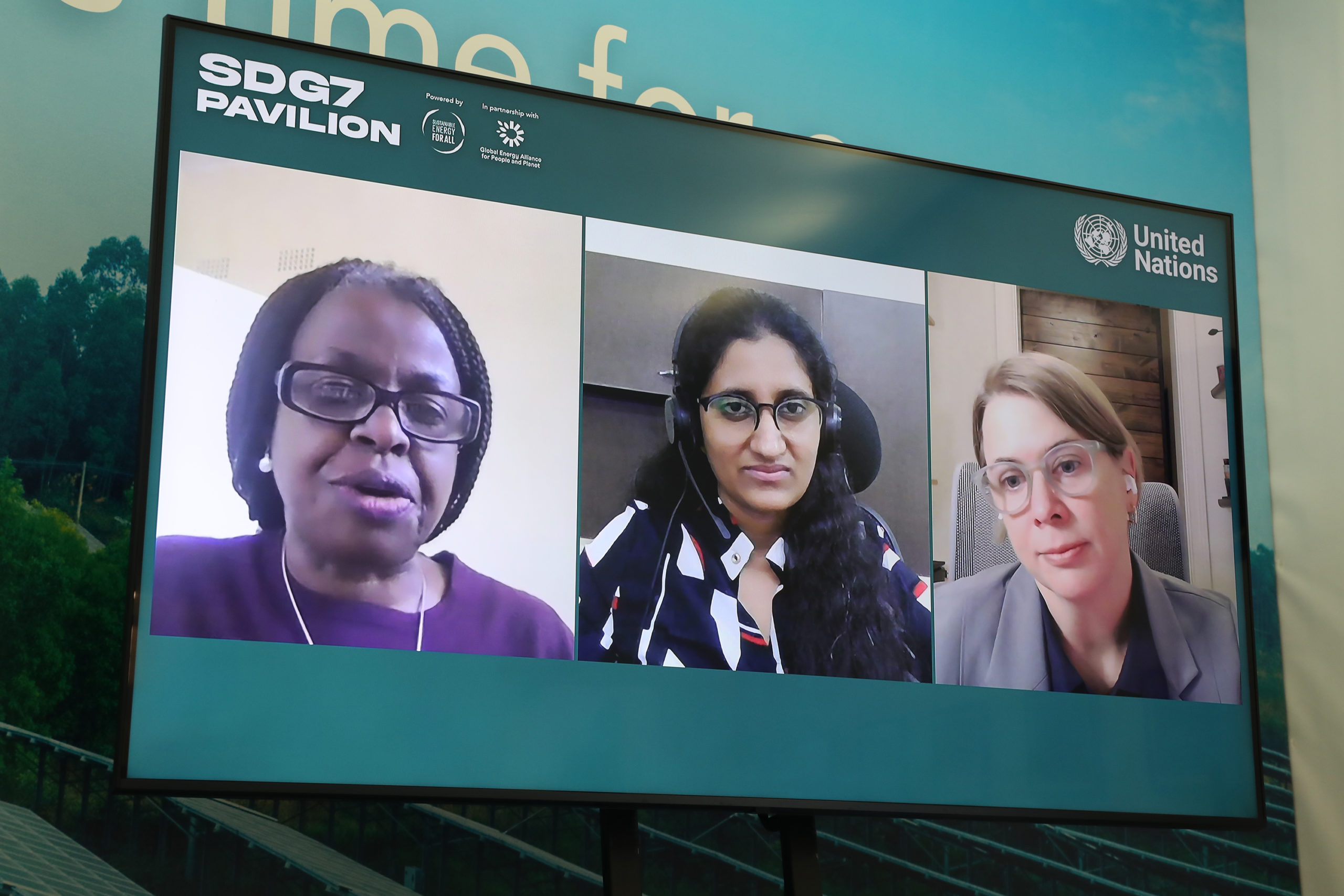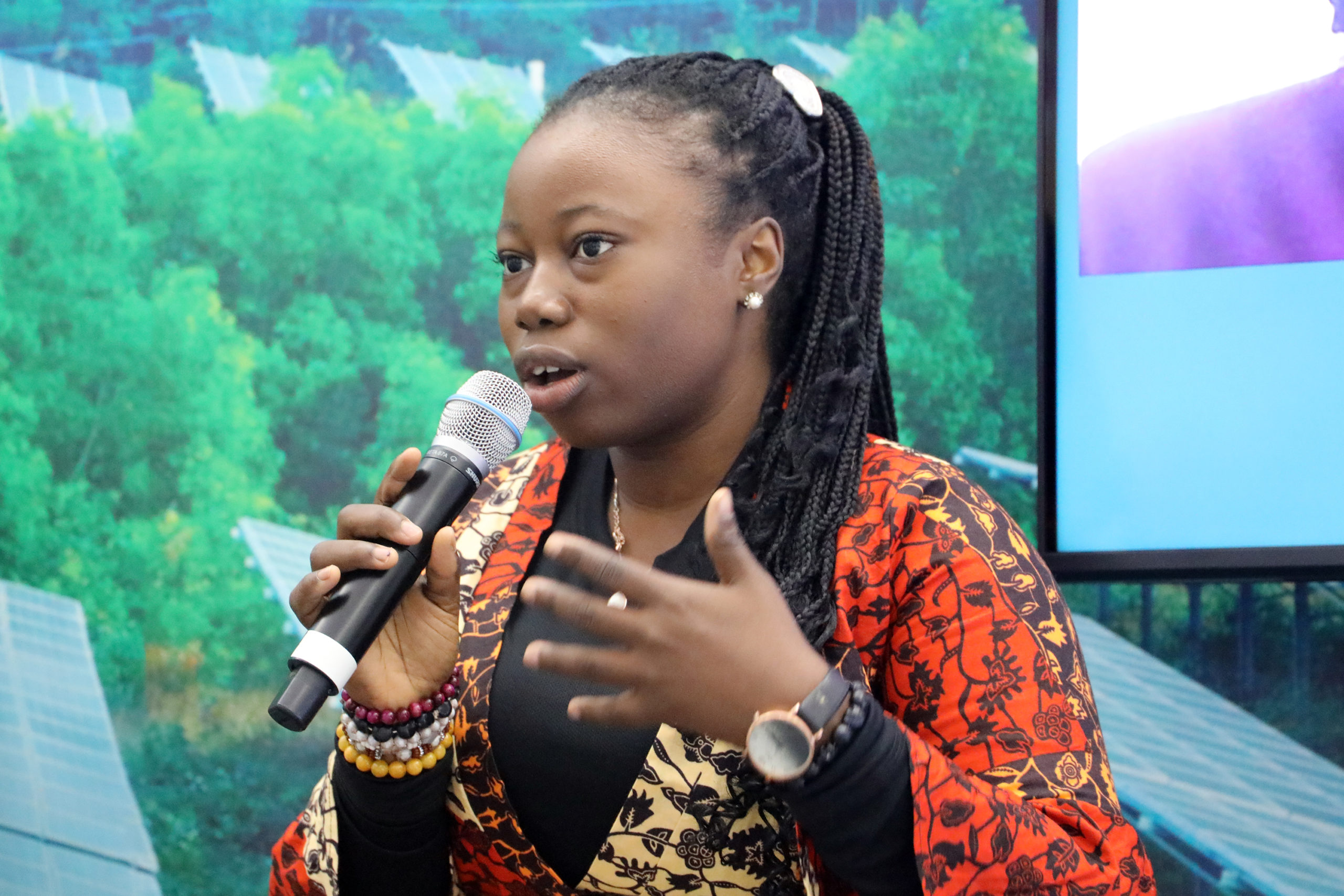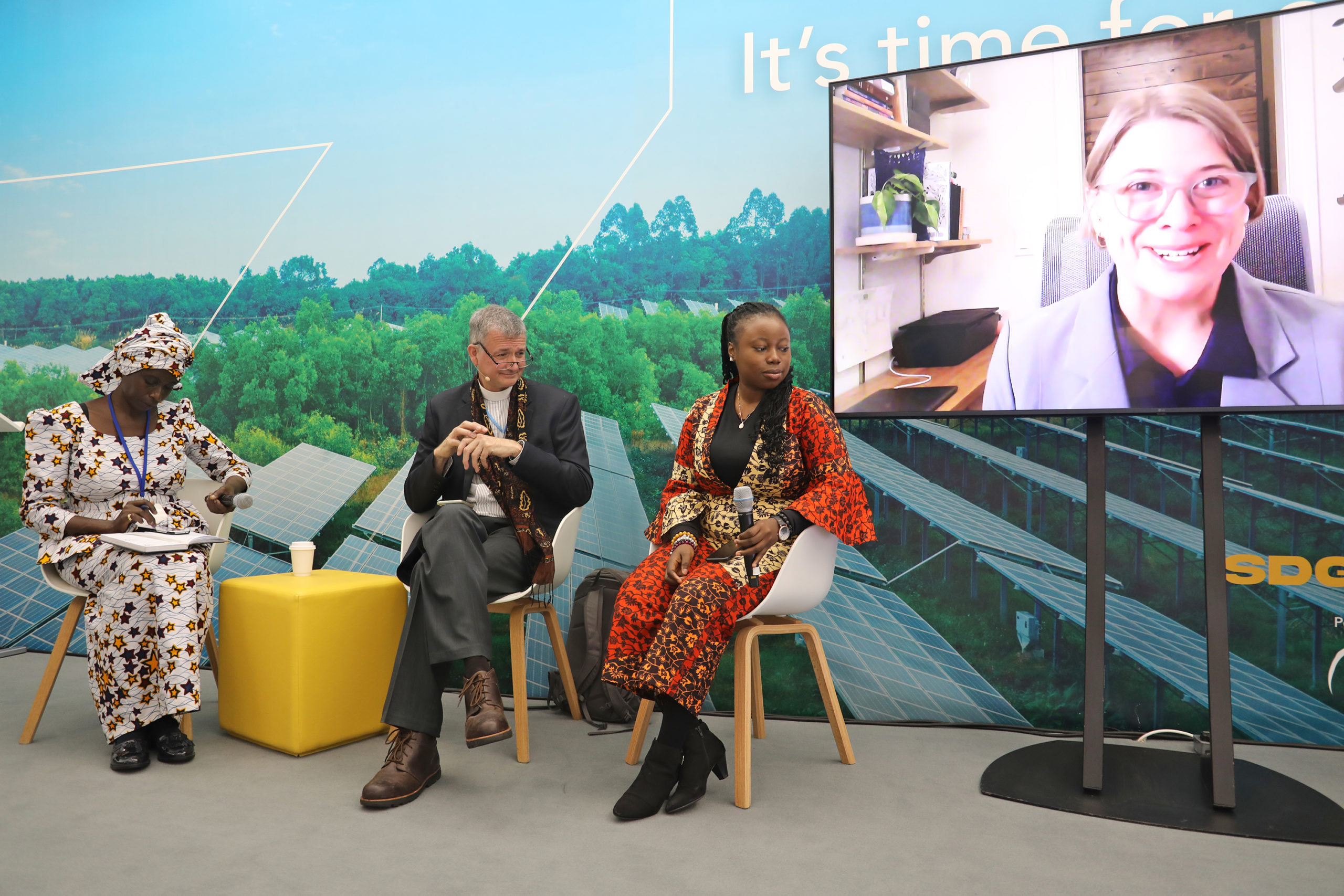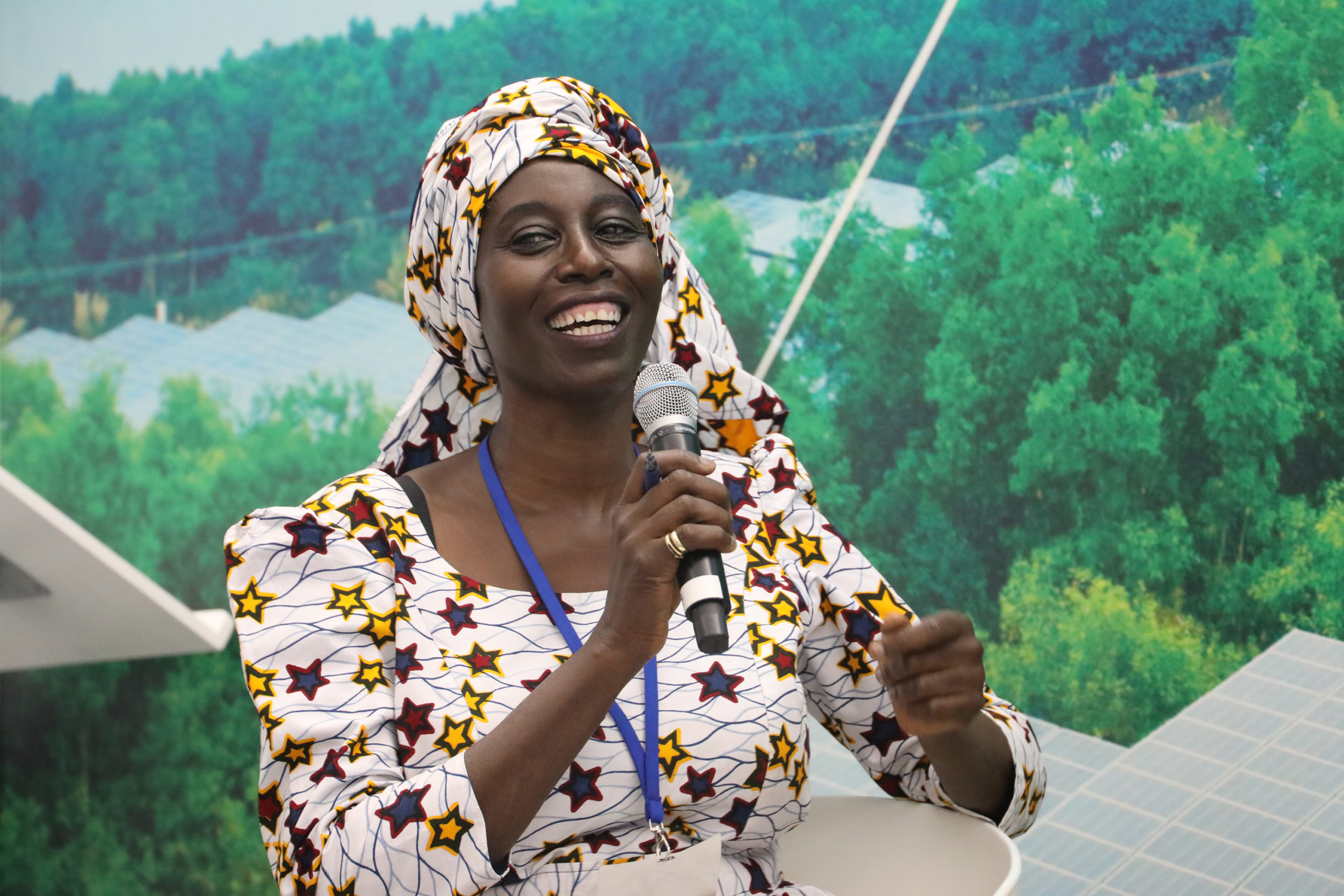By Fletcher Harper and Emira Woods
Thanks to the generosity of Sustainable Energy for All, Shine hosted a panel discussion at COP26 about the pivotal importance of energy access for women. Our panel took place days after the launch of the Global Energy Alliance for People and Planet, a partnership between three philanthropies: The Rockefeller Foundation, IKEA Foundation, and Bezos Earth Fund. The GEAPP aims to unlock $100 billion US in public and private financing in order to reach 1 billion people with reliable, renewable power, avoid and avert 4 billion tons of carbon emissions, and create, enable or improve 150+ million jobs. This powerful commitment will, without a doubt, create enormous good.
Our Shine team entered COP26 fully aware that today, more than 800 million people lack access to electricity, and hundreds of millions more lack access to clean cooking. These communities, which are concentrated in but certainly not limited to the African continent and India, suffer deadly health impacts from dirty kerosene and lack of access to medicines that require refrigeration for storage, or lighting for medical procedures. They miss opportunities for their young people to develop productive enterprises and create jobs. Children can’t study in the dark. Women, as always, suffer disproportionately.
These needs are even more urgent because the growing intensity of climate impacts – storms, droughts, floods, extended heat waves – means that these communities need all the resilience they can get. In addition, while energy-poor countries are currently responsible for 25% of global CO2 emissions, their share of global emissions could grow to 75% by 2050, meaning that empowering these communities to leapfrog fossil fuels and go straight to renewables is a precondition for avoiding a climate meltdown.
Furthermore, a rapid drive towards universal access to renewable energy is vital in the face of calls by several heads of state and the fossil fuel industry who claim that expanding fossil fuels is the only way to close the energy access gap. This regrettable (on the part of heads of state) and self-serving (on the part of oil and gas companies) call ignores the dual realities of the climate emergency and the decreasing prices of renewable energy, making renewables the cheapest option for new power in more than two-thirds of the world.
Within this context, Shine invited five women leaders – from the continents of Africa and North America, as well as India – to share their perspectives on energy access. What emerged was a clear consensus not only about the importance of women’s leadership, but also the indispensable value of community-scale, locally-owned energy access initiatives. Here’s what we heard.

Photo credit: SEforAll
- Shine’s Executive Director Everjoice Win, is based in Johannesburg. She emphasized the vital role of finance which explicitly prioritizes the needs of women and local communities. “It is exciting to see donors, governments, and philanthropists pledge and commit such eye-popping financial resources for clean, renewable energy,” she said. “Our question at Shine is, will these funds go towards massive-scale, shiny projects that concentrate power and ownership at the level of the wealthy elite, or will they support locally relevant and transformative projects which women and last mile communities want and need?”
- Aarthi Ramasubramanian, is a venture investment professional and Fund Manager at Opes-Lcef in Bengaluru, India. Opes-Lcef provides patient capital to early-stage companies, including energy access enterprises, which improve the lives of low-income people and create positive social and environmental impact. “Supporting women-led energy enterprises has a deep, percolating effect in empowering women in the energy value chain,” said Aarthi. “There are far too few firms willing to provide concessional and highly patient capital for these enterprises. If we are serious about ending energy poverty, this must change.”

Photo credit: SEforAll
- Oluwadabira Abiola-Awe is a Movement Associate with Student Energy, a global, youth-led organization empowering the next generation of leaders to accelerate the transition to a sustainable and equitable energy future. “Around the globe,” she said, “clean energy initiatives directed by young women and youth entrepreneurs are ready for funding. These initiatives, which are highly affordable and a source of new ideas and creativity for community-scale solutions, are consistently under-resourced. We need funding for these projects for the world to reach its climate and energy access goals.”

Photo credit: SEforAll
- Rev. Jenny Phillips, Senior Technical Advisor for Environmental Sustainability at United Methodist Global Ministries, is working to bring solar energy to faith-based health facilities in Liberia and the Philippines. Rev. Phillips underscored the importance of partnerships between religious groups and various types of energy access specialists, and of increased availability of blended and concessional finance. “We’re looking at strategies for bringing in investing partners to develop blended financing to extend our church’s own reach beyond the impact we can have by operating alone,” she said. “We know that women and last-mile communities face the greatest needs for energy access and our faith demands that we respond.”

Photo credit: SEforAll
- Sheila Oparaocha,Shine Executive Committee member and International Coordinator at ENERGIA emphasized that “We must be very clear with the international community, member states and organisations that we are not going to achieve SDG7, let alone have a just inclusive energy transition, if gender equality and women’s empowerment are not front and center. Front and center in what we have heard and individuals we have seen, where women are decision-makers, women are investors, women are providers of energy services.”
The Shine team knows that there are far more locally-owned, women-led energy access initiatives than commonly understood, and that large-scale, centralized approaches to energy access routinely fail to support these efforts. Our initial research in 2020-21 quickly uncovered well over 100 of these enterprises, all ready to receive the kinds of grant support and patient capital that is necessary for any energy enterprise to reach meaningful scale.
As we enter 2022, Shine is preparing to release its new strategic plan, which will articulate our strategy for insuring that the massive sums of money committed to energy access empower women and local communities literally, economically and politically – because we know that such multi-faceted empowerment is the only true means of achieving climate justice and sustainable development.


